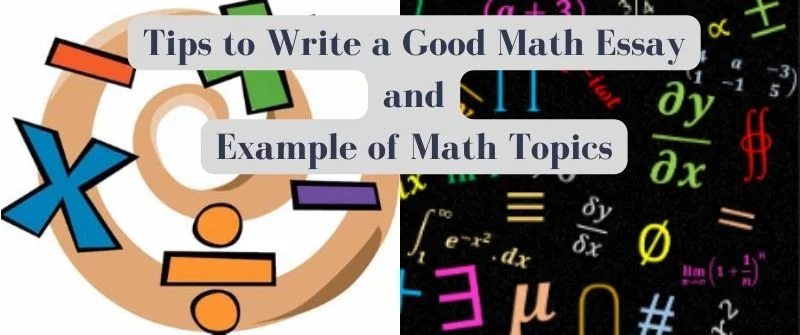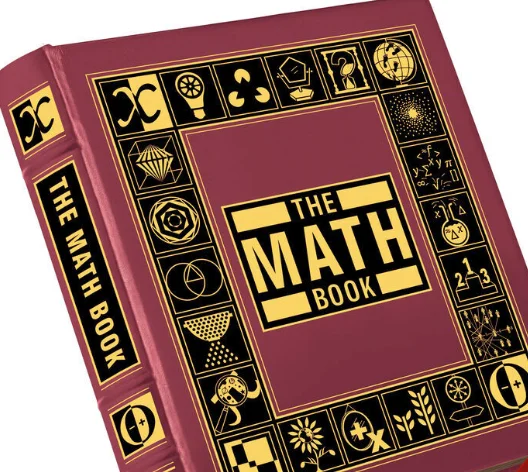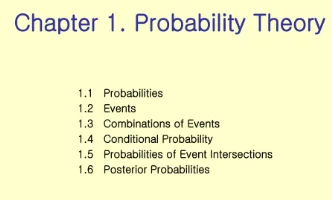25 Interesting Math Topics: How to Write a Good Math Essay

Mathematics is a fascinating world of numbers, shapes, and patterns.
Whether you are a student looking to grasp math concepts or someone who finds math intriguing, these topics will spark your curiosity and help you discover the beauty of mathematics straightforwardly and engagingly.
In this article, I will explore interesting math topics that make this subject not only understandable but also enjoyable.
Why Write About Mathematics
First, it helps demystify a subject that many find intimidating. By breaking down complex mathematical concepts into simple, understandable language, we can make math accessible to a wider audience, fostering greater understanding and appreciation.

Second, writing about mathematics allows us to showcase the practical applications of math in everyday life, from managing personal finances to solving real-world problems.
This helps readers recognize the relevance of math and its role in various fields and industries.
Additionally, writing about mathematics can inspire curiosity and a love for learning.
It encourages critical thinking and problem-solving skills, promoting intellectual growth and academic success.
Finally, mathematics is a universal language that transcends cultural and linguistic barriers.
After discussing math topics, we can connect with a global audience, fostering a sense of unity and collaboration in the pursuit of knowledge
25 Interesting Math Topics to Write On
Mathematics is a vast and intriguing field, offering a multitude of interesting topics to explore and write about.
Here are 25 such topics that promise to engage both math enthusiasts and those seeking a deeper understanding of this fascinating subject.
1. Fibonacci Sequence: Delve into the mesmerizing world of numbers with this sequence, where each number is the sum of the two preceding ones.
2. Golden Ratio: Explore the ubiquity of the golden ratio in art, architecture, and nature.
3. Prime Numbers: Investigate the mysterious properties of prime numbers and their role in cryptography.
4. Chaos Theory: Understand the unpredictability of chaotic systems and how small changes can lead to drastically different outcomes.
5. Game Theory: Examine the strategies and decision-making processes behind games and real-world situations.
6. Cryptography: Uncover the mathematical principles behind secure communication and encryption.
7. Fractals: Discover the self-replicating geometric patterns that occur in nature and mathematics.
8. Probability Theory: Dive into the world of uncertainty and randomness, where math helps us make informed predictions.

9. Number Theory: Explore the properties and relationships of integers, including divisibility and congruence.
10. Geometry of Art: Analyze how geometry and math principles influence art and design.
11. Topology: Study the properties of space that remain unchanged under continuous transformations, leading to the concept of “rubber-sheet geometry.”
12. Knot Theory: Investigate the mathematical study of knots and their applications in various fields.
13. Number Systems: Learn about different number bases, such as binary and hexadecimal, and their significance in computer science.
14. Graph Theory: Explore networks, relationships, and the mathematics of connections.
15. The Monty Hall Problem: Delight in this famous probability puzzle based on a game show scenario.
16. Calculus: Examine the principles of differentiation and integration that underlie a wide range of scientific and engineering applications.
17. The Riemann Hypothesis: Consider one of the most famous unsolved problems in mathematics involving the distribution of prime numbers.
18. Euler’s Identity: Marvel at the beauty of Euler’s equation, often described as the most elegant mathematical formula.
19. The Four-Color Theorem: Uncover the fascinating problem of coloring maps with only four colors without adjacent regions sharing the same color.
20. P vs. NP Problem: Delve into one of the most critical unsolved problems in computer science, addressing the efficiency of algorithms.
21. The Bridges of Konigsberg: Explore a classic problem in graph theory that inspired the development of topology.
22. The Birthday Paradox: Understand the surprising likelihood of shared birthdays in a group.
23. Non-Euclidean Geometry: Step into the world of geometries where Euclid’s parallel postulate doesn’t hold, leading to intriguing alternatives like hyperbolic and elliptic geometry.
24. Perfect Numbers: Learn about the properties of numbers that are the sum of their proper divisors.
25. Zero: The History of Nothing: Trace the historical and mathematical significance of the number zero and its role in the development of mathematics.
How to Write a Good Math Essay
Mathematics essays, though often perceived as daunting, can be a rewarding way to delve into the world of mathematical concepts, problem-solving, and critical thinking.
Whether you are a student assigned to write a math essay or someone who wants to explore math topics in-depth, this guide will provide you with the key steps to write a good math essay that is clear, concise, and engaging.
1. Understanding the Essay Prompt

Before you begin writing, it’s crucial to understand the essay prompt or question.
Analyze the specific topic, the scope of the essay, and any guidelines or requirements provided by your instructor.
Mostly, this initial step sets the direction for your essay and ensures you stay on topic.
2. Research and Gather Information
You need to gather relevant information and resources to write a strong math essay. This includes textbooks, academic papers, and reputable websites.
Make sure to cite your sources properly using a recognized citation style such as APA, MLA, or Chicago.
3. Structuring Your Math Essay
Start with a clear introduction that provides an overview of the topic and the main thesis or argument of your essay. This section should capture the reader’s attention and present a roadmap for what to expect.
The body of your essay is where you present your arguments, explanations, and evidence. Use clear subheadings to organize your ideas. Ensure that your arguments are logical and well-structured.
Begin by defining any important mathematical concepts or terms necessary to understand your topic.
Clearly state your main arguments or theorems. Please support them with evidence, equations, diagrams, or examples.
Explain the logical steps or mathematical reasoning behind your arguments. This can include proofs, derivations, or calculations.
Ensure your writing is clear and free from jargon that might confuse the reader. Explain complex ideas in a way that’s accessible to a broader audience.
Whenever applicable, include diagrams, graphs, or visual aids to illustrate your points. Visual representations can enhance the clarity of your essay.
Summarize your main arguments, restate your thesis, and offer a concise conclusion. Address the significance of your findings and the implications of your research or discussion.
4. Proofreading and Editing

Once you’ve written your math essay, take the time to proofread and edit it. Pay attention to grammar, spelling, punctuation, and the overall flow of your writing.
Ensure that your essay is well-organized and free from errors.
Consider seeking feedback from peers or an instructor to gain a fresh perspective.
5. Presentation and Formatting
A well-presented essay is more likely to engage the reader. Follow these formatting guidelines:
- Use a legible font (e.g., Times New Roman or Arial) in a standard size (12-point).
- Double-space your essay and include page numbers if required.
- Create a title page with your name, essay title, course information, and date.
- Use section headings and subheadings for clarity.
- Include a reference page to cite your sources appropriately.
6. Mathematical Notation and Symbols
Mathematics relies heavily on notation and symbols. Ensure that you use mathematical notation correctly and consistently.
If you introduce new symbols or terminology, define them clearly for the reader’s understanding.
7. Seek Clarification
If you encounter difficulties or ambiguities in your math essay, don’t hesitate to seek clarification from your instructor or peers.
Discussing complex mathematical concepts with others can help you refine your understanding and improve your essay.
8. Practice and Feedback
Writing math essays, like any skill, improves with practice. The more you write and receive feedback, the better you’ll become.
Take your time with initial challenges. Instead, view them as opportunities for growth and learning.
With dedication and attention to detail, you can craft a math essay that not only conveys your mathematical knowledge but also engages and informs your readers.

Josh Jasen or JJ as we fondly call him, is a senior academic editor at Grade Bees in charge of the writing department. When not managing complex essays and academic writing tasks, Josh is busy advising students on how to pass assignments. In his spare time, he loves playing football or walking with his dog around the park.




